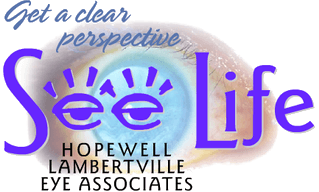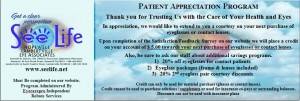American Optometric Association Consumer Alert and Guidance to Protect Eyes Against Exposure to Air Pollutants
Wildfires are actively causing poor air quality in the northeastern U.S., posing a health danger to millions of Americans. These conditions are expected to last through the weekend. Naturally, smoke irritates the eyes and lungs and exacerbates existing medical conditions. Prolonged exposure to hazardous levels of smoke and pollution can trigger asthma attacks, cardiac arrest, arrhythmias and more and can cause significant harm to the eyes.

Contact with these pollutants daily and in excess may cause eye issues such as dryness, redness and inflammation. It is imperative to protect one's eyes from the polluted air. Here are some tips.
- Stay indoors as much as possible. While it isn’t possible to stay indoors at all times, when the air quality is very bad or a public health alert is issued, individuals should remain indoors as much as possible. This is especially important for those who are allergic to dust, asthmatic, have heart conditions or those with serious medical issues. If you do go outdoors, consider taking a quick shower to rinse pollutants out of hair and off skin and eyelids when returning indoors. You may also want to wash and change your pillowcase daily—particles do get inside and may land on surfaces including your pillow.
- Use eye protection while out. With severely poor air quality, there is a need to protect the eyes. Individuals should wear sunglasses or eye protection when outdoors to help protect the eyes from exposure. Also, use an N95 mask outdoors as long as poor air quality conditions persist.
- Avoid rubbing your eyes. Pollution particles irritate the eyes when exposed to them. However, it is important to avoid rubbing your eyes, as that action may increase discomfort and make your eyes feel burning or watery. Also, practice good eye hygiene, including when cleaning your eyelids. Wash your hands and use a clean cloth.
- Use appropriate relief options upon consultation with your doctor of optometry. The surface of the eye, or the cornea, may be protected from dryness, itching and hazardous pollutants by a layer of moisture. Using eye drops regularly aids in maintaining the health of one’s eyes, but it is important to consult with your doctor of optometry to determine which drops may be appropriate. Other options your doctor may suggest include ointments, artificial tears, cold compress and gently cleaning eye lids prior to bedtime.
- Use good contact lens hygiene. Smoke and fine particulate matter can become trapped beneath a contact lens, causing great discomfort and inflammation. You should use proper contact lens hygiene, including replacing your lenses on a regular basis, washing and drying your hands before handling contact lenses, and cleaning your lenses with the appropriate solution (e.g., do not use water to rinse your lenses). You should discontinue wearing your contact lenses if you have any eye irritation, pain or if discomfort occurs.
- Consult your doctor of optometry on a regular basis. Never ignore an eye or vision issue, especially when the air quality is unhealthy. To maintain your eye health, you should get an annual, in-person eye examination with your doctor of optometry. You should also seek immediate medical help from your doctor if the dryness or irritation in your eyes stays for a long period.
For more information call Hopewell Lambertville Eye Associates:
Hopewell 609-466-0055 Lambertville 609-397-7020 emergency care 609-213-5008
www.seelife.net




